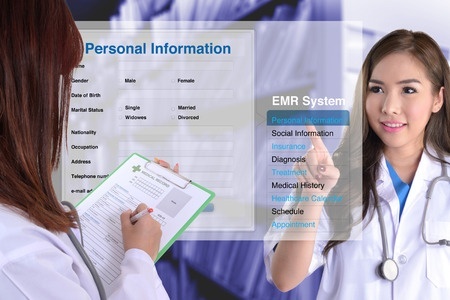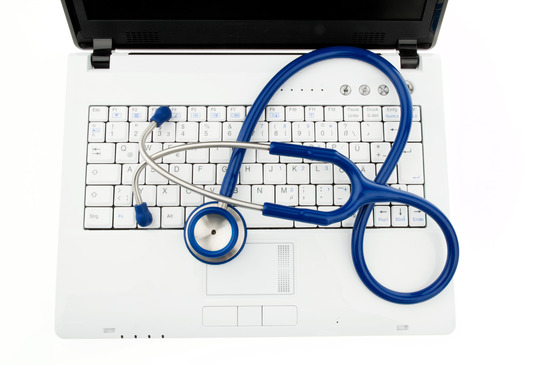Organizations across industries adopted large-scale digitization and at least some automation in the last few years. Healthcare IT faced a host of hurdles in digitization, ranging from patient privacy issues, stringent regulations over records maintenance to institutional stakeholder concerns. This lag is now receding. The COVID-19 pandemic accelerated digital workflow adoption. Increasing demands on healthcare systems, medical workers, and pressure on profile margins pushed up the pace of digitization.
Digitization & Workflow Automation: Twin Value-drivers for Healthcare HR Onboarding
Topics: electronic medical records, automated workflows, medical document scanning, digitizing
Here Are the EMR Laws to Know to Comply with HIPAA
Does your business handle patient information? Are you familiar with the emr laws? Have you taken the proper steps to secure protected information?
Topics: electronic medical records, medical document scanning
Today more and more healthcare facilities, both hospitals and private practices, are moving from paper files to electronic medical records. The benefits of electronic medical records are numerous for both patients and healthcare providers.
Topics: electronic medical records
How to Make the Change to Paperless Medical Records While Maintaining Confidentiality
With the advances in modern technology, more hospitals and clinics are eliminating clutter, and opting for a paperless management system. Implementing paperless medical records in a busy medical practice can save time in billing, streamline office tasks, and free up needed storage space. Although the benefits of a paperless practice are clear, not all healthcare professionals have the resources available to begin the process. The choice to go paperless is both environmentally friendly and cost-effective in comparison with storing and accessing various patient files.
Topics: electronic medical records
Benefits of Hiring a Medical Document Scanning Service
Using digital medical documents – instead of paper – is absolutely the best course of action for all medical organizations. This is because it saves money, streamlines document accessibility and improves document security. This means not only creating digital documents for the future, but also converting your current paper documents to digital files. But, like all medical organizations, yours has mounds of paperwork that needs to be converted, so how should you go about making the switch? The best way to go about medical document scanning is to hire a professional service - and here is why:
Topics: document scanning, electronic medical records, medical document scanning
What You Must Know About Medical Records Retention Requirements
To ensure total patient safety, streamlined oversight and the highest quality of care, Canada's government has certain medical records retention requirements that you must follow. As with any government regulations, completely learning these requirements can be a convoluted process. To help your medical organization to get on track with the federal government's medical records retention requirements ASAP, we are going to break down what you need to know about them.
The medical records that you retain are invaluable assets for delivering solid care for your patients. In order to fully benefit from them, they must be stored in a manner that makes the information you need accessible without compromising the privacy of a patient.
Topics: electronic medical records, data storage
Your patients' medical records must be protected. This, you already know. The best way to go about protecting them, however, can be a conundrum. The best way to keep your patients’ medical records safe is by going electronic. Let's take a look at why electronic medical records (EMRs) security is better than the alternative:
Topics: electronic medical records
How to Comply with Electronic Medical Records Policy
The use of electronic medical records (EMRs) is a virtual mandate for Canadian medical practices. They increase efficiency, save lots of money, and help doctors and medical assistants do their jobs better. However, the growing prevalence of EMRs also means that a new set of government policies have inevitably arisen. This means that you will have to change the way that you manage your EMRs in order to comply with these new policies.
Topics: electronic medical records
4 Methods for Successful Electronic Medical Records Implementation
If you have decided that you want to upgrade your medical practice's logistical operations to include electronic medical records (EMRs), then you need to stop, breathe, and take a step back. While you are making the right decision switching from paper medical records to EMRs, making this change will be a headache if you do not use the right methods - the wrong methods for electronic medical records implementation can cause a lot of serious issues, including:
Topics: EMR, electronic medical records










